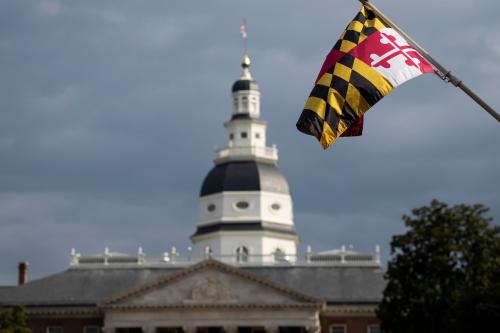TomPaine.com Editor’s Note: He has been around so long—he first came to Washington to work for Eisenhower!—that there doesn’t seem much new in Washington news. When we asked for proof, he pointed to his old columns from twenty years ago. Dig in there, he suggested, and you’ll agree. We did. We do.
From time to time we plan to republish Mr. Hess’s old columns as a reminder of the historian’s creed: “the more things change ….”
This column first ran on March 19, 1978. It seems as fresh as the day he wrote it.
My old college roommate Dick came to visit and the conversation, as it always does in Washington, turned to politics. Dick had been a civil rights activist in the early 1950s, a full decade before it became a fashionable avocation for middle-class whites. But he now rather sheepishly admitted he had not voted in the last congressional election. In fact, after a redistricting, he did not even know the name of the person who represented him. His disgust for politicians in general and members of the U.S. Congress in particular, seemed total. The Koreagate scandal, he said, is an indication of the caliber of our legislators.
This attitude may not be typical, but it is clearly shared by a large number of Americans. Dick is troubled by being turned off by the state of politics as he sees it—he would like to think of himself as a good citizen. Could I help? Before he went back to New Jersey, I promised to write a column for him to be called: “In Defense of Politicians.”
Not in “Defense of Corruption.” The crooked politician deserves the same fate as any other crook. Nor should it be argued that there are crooks in other occupations and professions. I don’t know if the percentage is higher in politics, although I suspect it may appear higher because the news media rightly devote considerable attention to “malefactors of the public trust.”
People go into elective politics for a variety of reasons. Some are strongly influenced by family tradition. Some conclude that politics can be financially rewarding. Others are attracted to the challenge or have commitments to certain proposals or to their community. The reasons are not so different from those found in other occupations. Sociologist Robert K. Merton, for example, finds that scientists may be motivated “by a disinterested desire to learn, by hope or economic gain, by active. . .curiosity, by aggression or competition, by egotism or altruism.”
It is helpful to sort out what politicians can and cannot do in a democracy. Daniel P. Moynihan, the Harvard professor who has become a U.S. senator, once wrote that government “cannot provide a meaning to life. It cannot provide inner peace. It can provide outlets for moral energies, but it cannot create those energies.” He is saying, I think, that we have been asking too much of our politicians, and have lost faith when they cannot deliver.
What then is politics all about? It is usually defined as the activity by which differing interests within a territory are conciliated. In other words, politicians are supposed to help lessen the frictions caused by conflicting interests rubbing together. Their job is to devise solutions that are the least unsatisfactory to the most people. When demands on government are infinite and resources are finite, politicians are at hand to do the allocating.
This is not a job that attracts persons of genius. Rarely does a politician create ideas as does a poet or a philosopher or a painter. The legislative politician is simply expected to shape what is present into a form that better fits what is needed. This is a group enterprise, which also separates it from most undertakings that are associated with genius.
Sometimes truly remarkable people will get into politics. But this usually happens at moments of crisis, such as the founding of a nation. Unfortunately, for too many years our schools taught history as a chronicle of great men—and thus may have led us to expect unrealistic talents in our political class.
There is some scholarly evidence—such as James David Barber’s study of the Connecticut state legislature—to show that the politician who climbs the pyramid of elective offices is the one who can best reconcile divergent points of view, and deal with ambiguity, long hours, unreasonable demands, and repeated obstacles. Barber found that those who had made the most significant legislative contributions were most likely to continue in politics.
There are, of course, examples of durable politicians who have survived without talent, commitment, or other elevating qualities. Yet in seeking successively higher office, a politician’s fitness receives increasingly greater attention from voters, journalists, and opponents. While not foolproof, the system is designed to build a sort of Anti-Peter Principle.
This will not impress the cynic who shares H.L. Mencken’s view of the politician as “a sturdy rogue” whose sole aim in life is to butter his parsnips.” But, after all, my aim is only to convince a somewhat skeptical old friend that politics is worth the effort, and that, as Bagehot said, the very best politician in a democratic society is surely “an uncommon man of common opinions.”
So while it may not be a calling of genius, politics is a profession of usefulness and necessity. The politician need not be revered or reviled. Indeed, the nation that reveres its political class fails to properly place the order of talents involved; the nation that reviles its politicians fails to comprehend the utility of the services they are there to perform.
The Brookings Institution is committed to quality, independence, and impact.
We are supported by a diverse array of funders. In line with our values and policies, each Brookings publication represents the sole views of its author(s).



Commentary
Op-edOn Being Disillusioned with Politics in Defense of Politicians
November 22, 1999